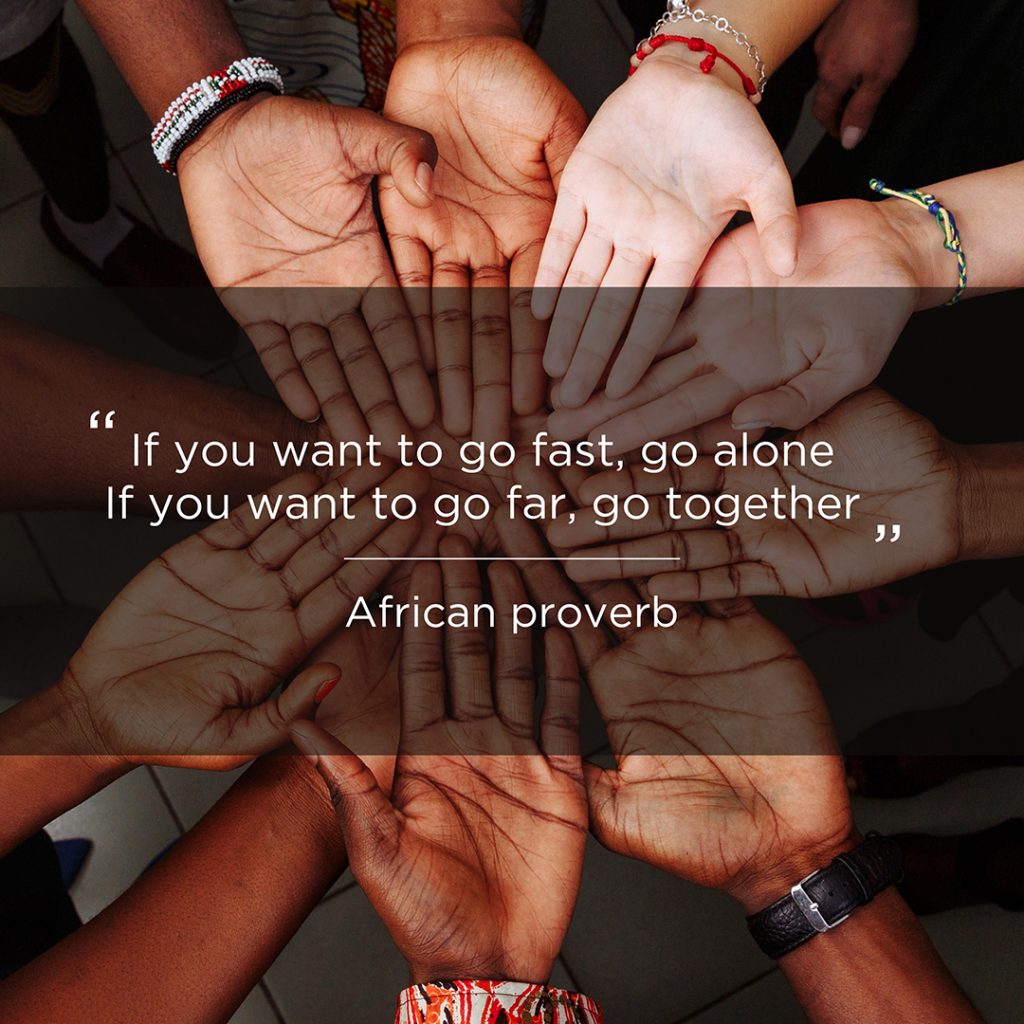
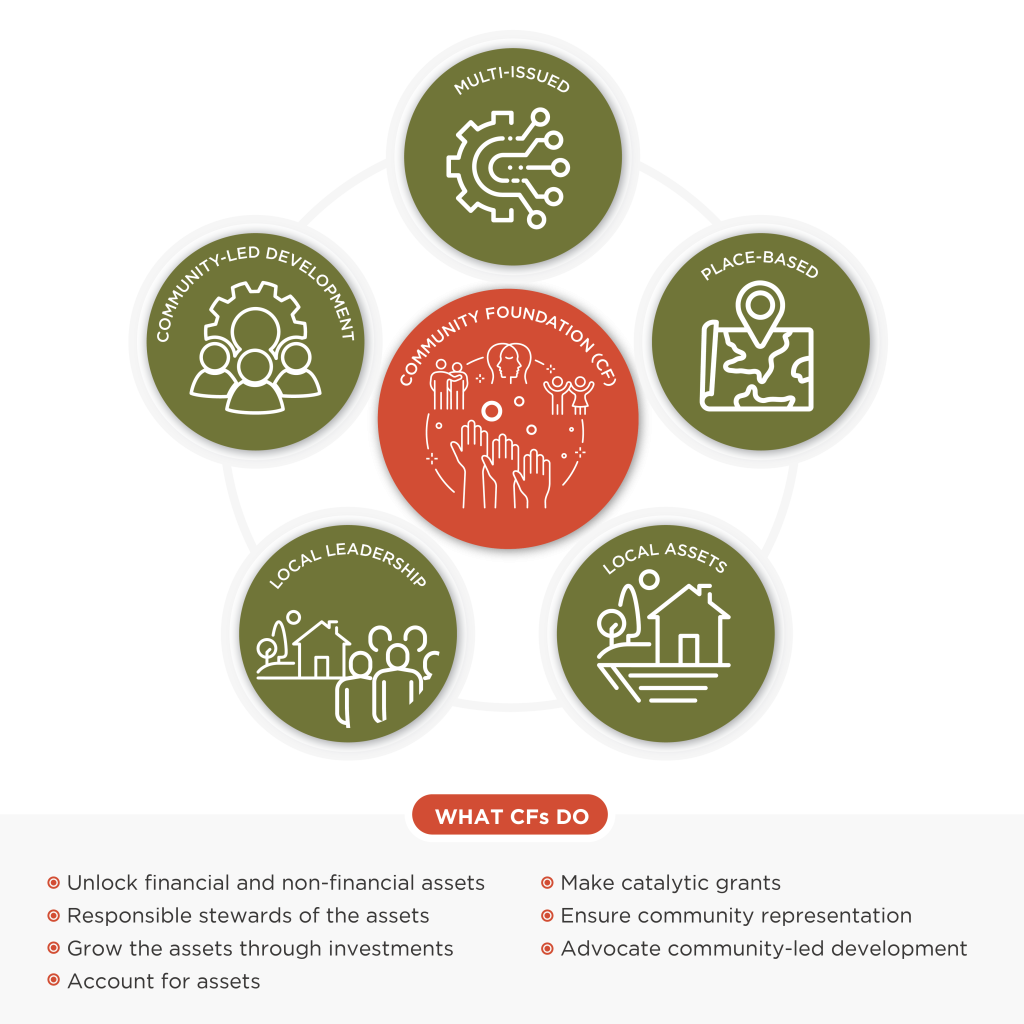
The community foundation stands at the intersection between vertical and horizontal giving. In effect, at the interface between informal community giving, and vertical institutionalised giving. The primary task of the community foundation is to help unlock local community assets (both financial and non-financial), so that they are able to use these assets to leverage investment by vertical sources, for community-led and managed development. This is illustrated below:
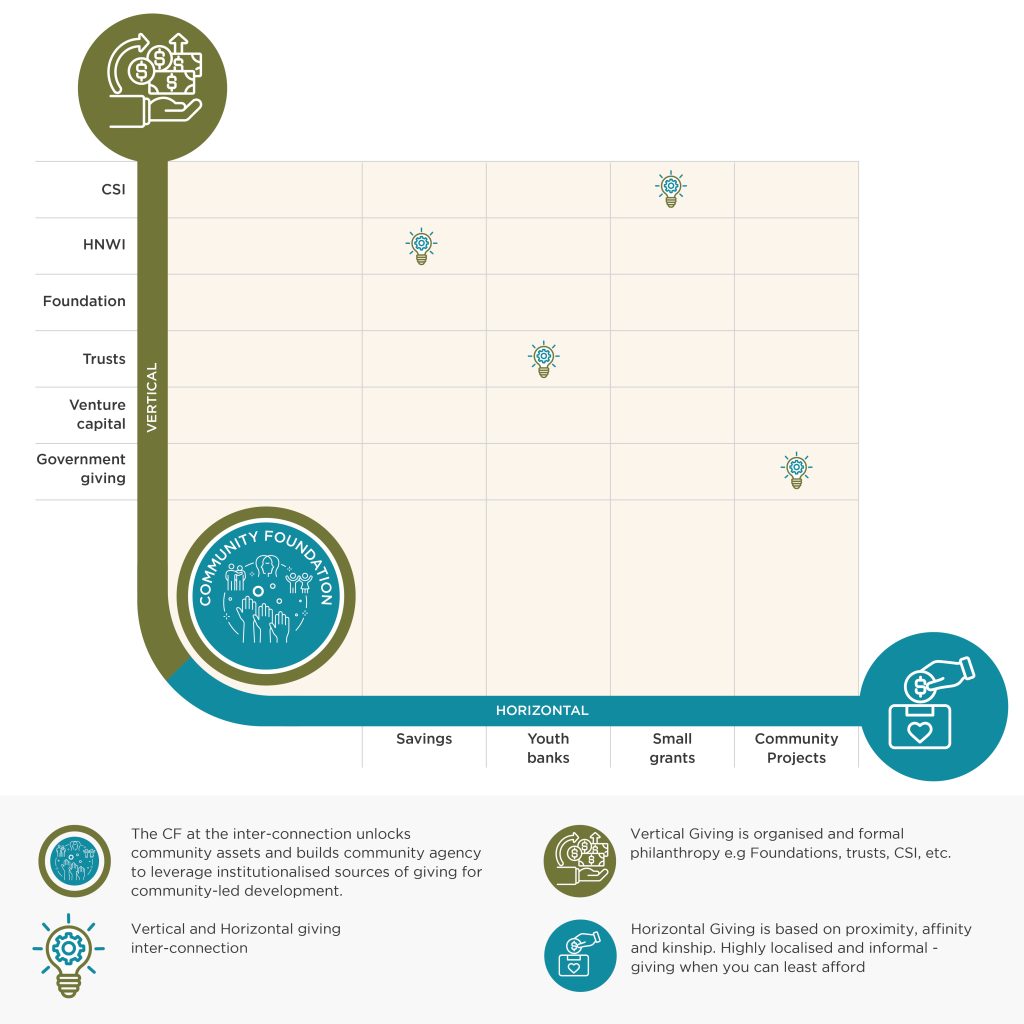
Vision – Communities across Africa have agency, voice and capacity to lead and manage their own development and destinies by unlocking local resources and assets to leverage multi-sectorial and multinational resources towards achieving their sustainable development goals.
Mission: Build a network of competent infrastructure organisations, able to deepen the field of community philanthropy and establish, nurture, support and connect a movement of community foundations in each of the SADC countries.
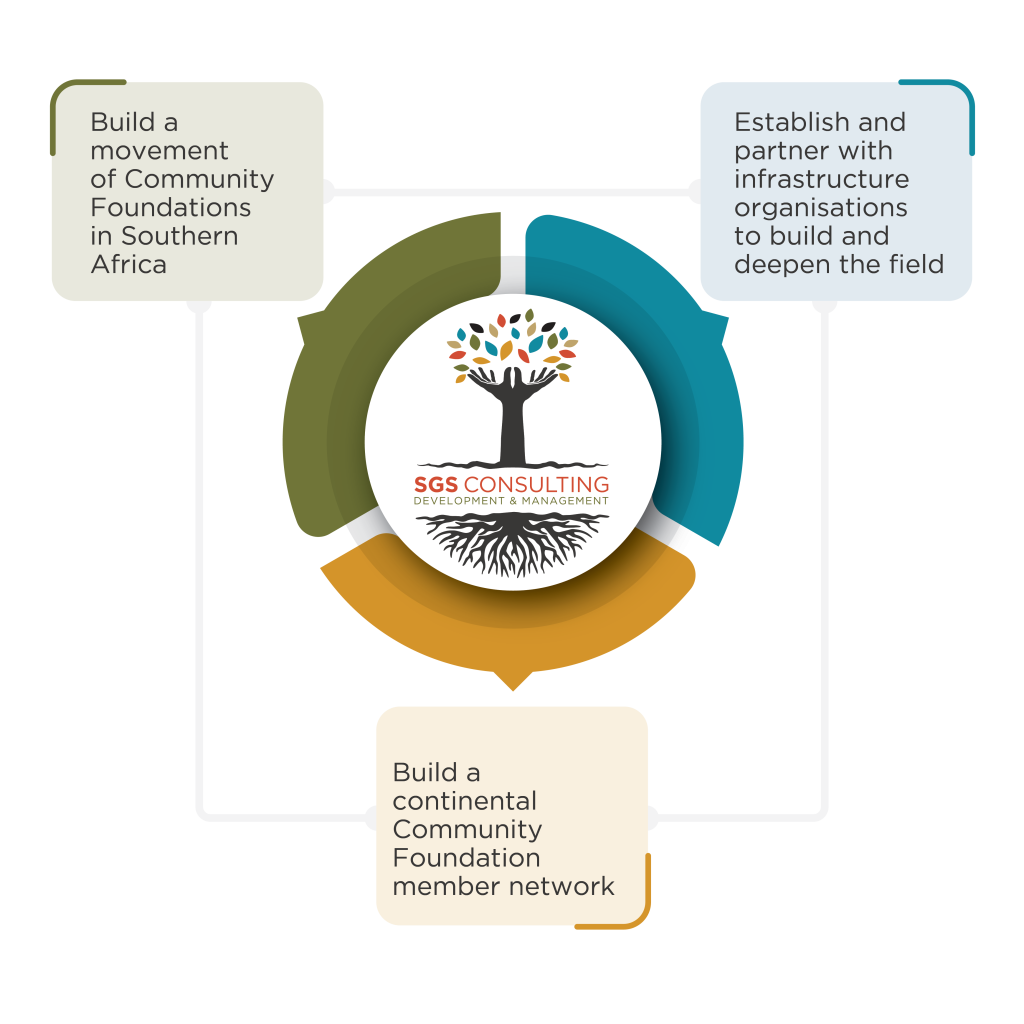
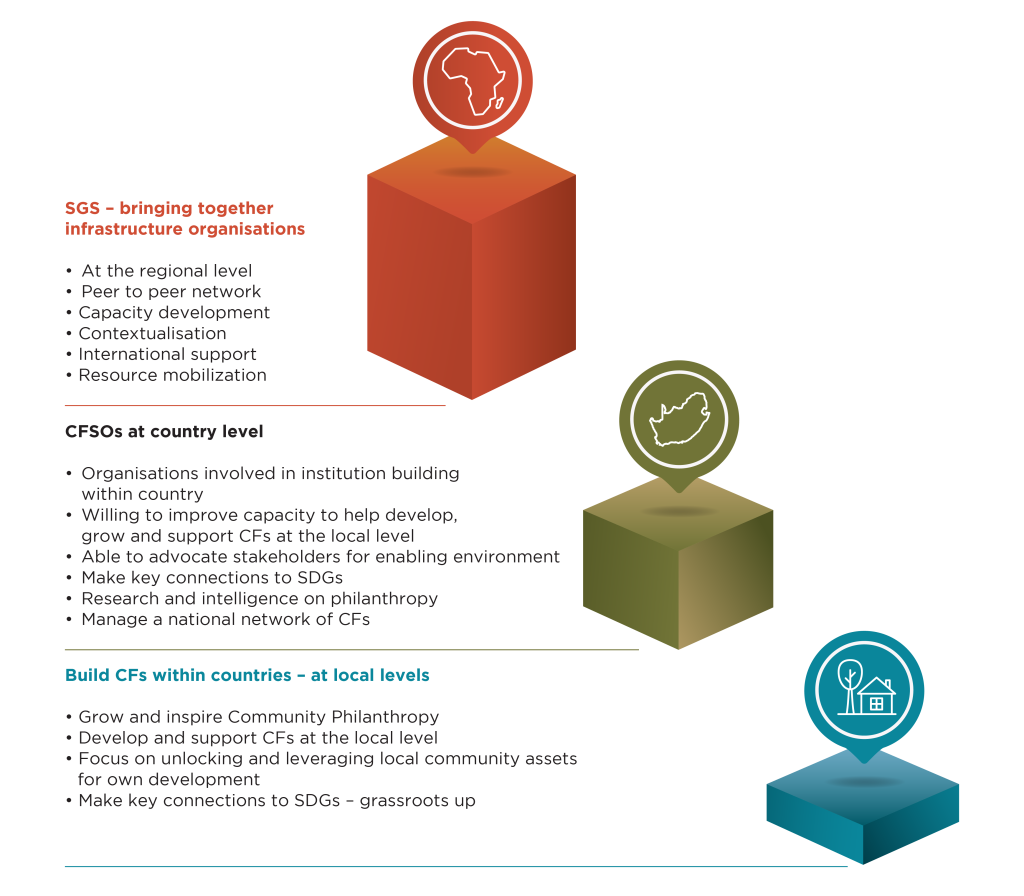
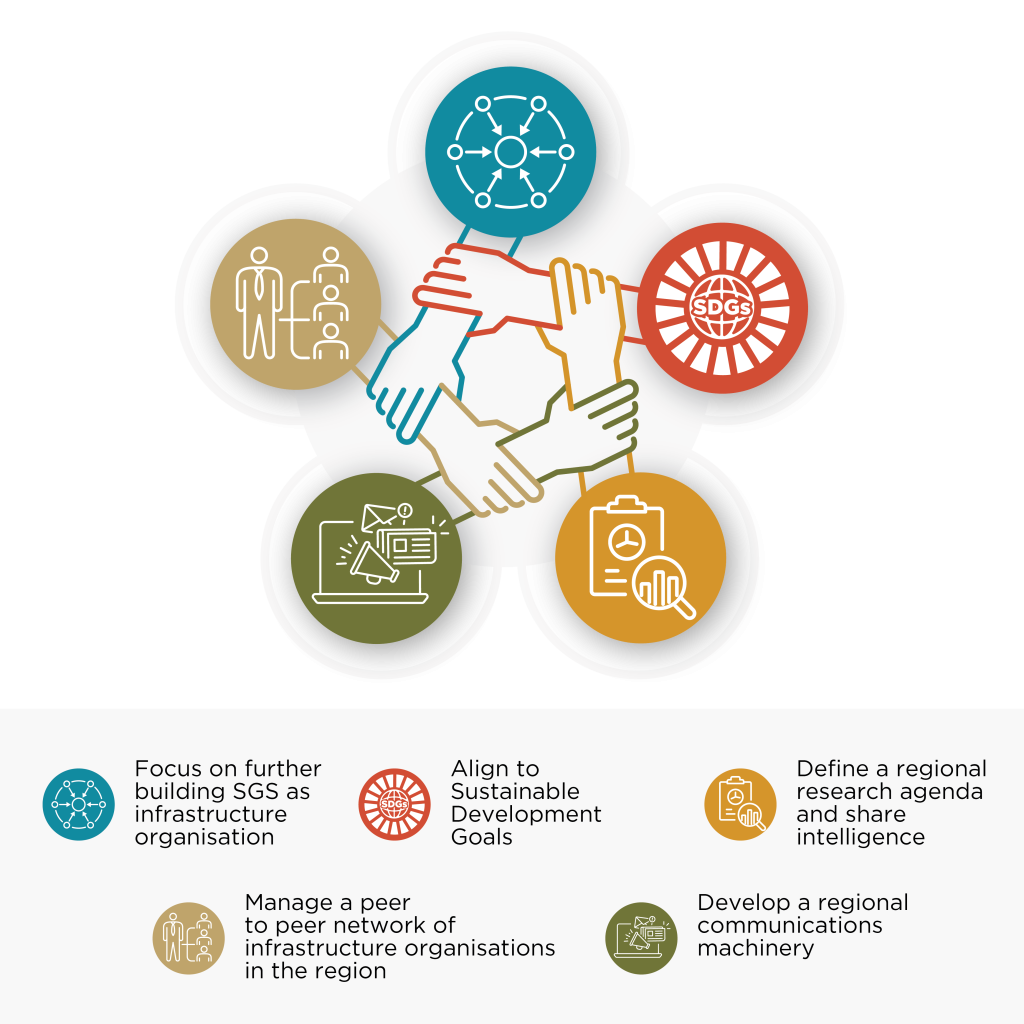
Strategy
The strategy is to use the SDGs as the rallying call to multi-sectoral action at country and local levels, and to encourage the CFs and CFSOs, along with their social capital, to engage and adopt the SDGs as a common action platform. The emphasis is on educating community foundations on the SDGs, creating an inclusive environment for community foundations in which to participate, making them key collaborators in pursuit of the goals.
The compelling argument is that without community participation at the grassroots levels, and local initiatives, the SDGs and related endeavours to solve local to global challenges will not be possible to fully achieve.
The two important imperatives of the project are the following
The primary intent in line with the imperatives, is to demonstrate that CFs and CFSOs are already contributing to the SDGs, and to encourage them to more actively use the SDGs as part of their programming, monitoring and reporting.
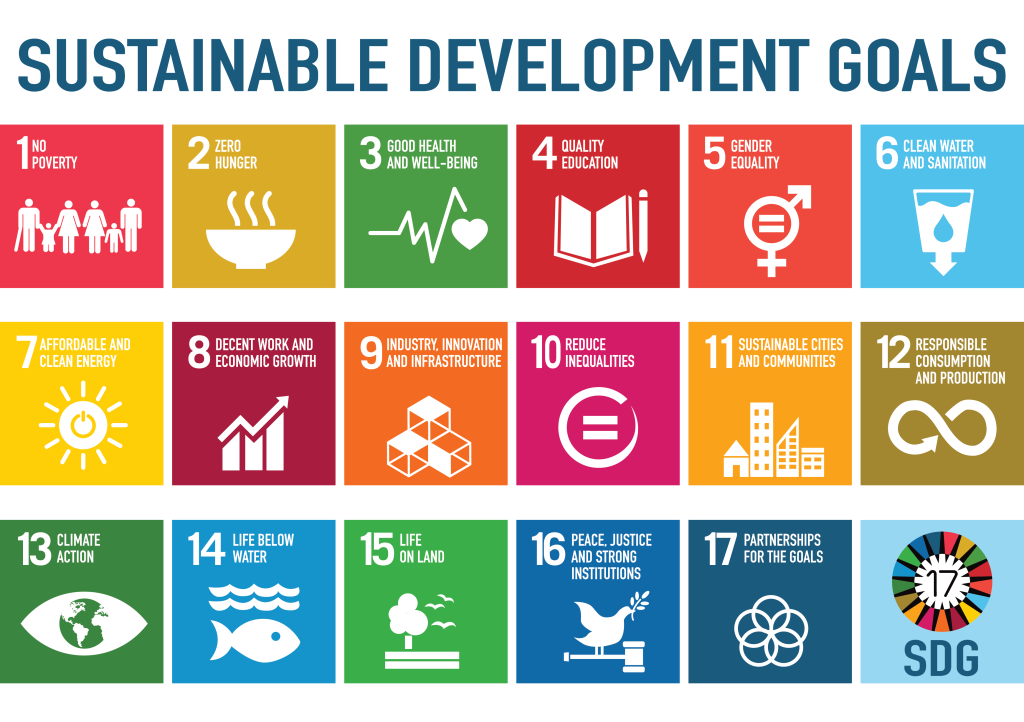
The pilot project
The project was undertaken from August 2022 to February 2023. It forms part of a broader programme implemented by SGS Consulting and supported by the Charles Stewart Mott Foundation to use the SDGs as the rallying call to multi-sectoral action at country and local levels. These broader efforts encourage CFs and CFSOs, along with their social capital, to engage and adopt the SDGs as a common action platform. It reinforces multi-sectoral collaboration in working to realize the SDGs (depending on comparative advantages), and offers a common reporting and accountability framework using the indicator statements and targets. This will hopefully help to reinforce multi-sector collaboration at country level in reporting progress against relevant indicators and targets, and where needed, add additional indicators and targets that resonate more with civil society priorities. More importantly though, that civil society agency and voice are central to collective efforts at realising the SDGs.
The objective of the study was to support CFs and CFSOs to be able to profile their current work in order to understand and reflect how they contribute and align to select SDGs.
The following six CFs/CFSOs participated in this study:
Each study partner has produced a publication, supported by a summary report of the project and its outcomes
See Reports here
This work is set to continue in 2023 / 2024 by further training and capacity building on SDGs, building stronger monitoring and evaluation systems within CFs, forging closer collaborations between government and community foundations, reaching out to SDG task teams at country and regional levels, exploring fund-raising opportunities, and continuing research and documentation.
Funded by
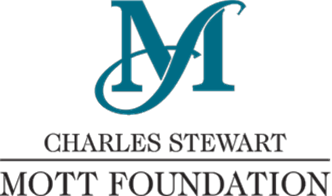
“On behalf of the World Connect Malawi team, I would like to express my heartfelt thanks for the great work and support you rendered to us last week. Your presence made a huge difference and I believe we have planted a seed that will grow exponentially in the coming years. Feel appreciated”.
SGS Consulting has been instrumental in ICA’s growth and development into a Community Foundation of note on the African continent. We’ve made strong strides, we’ve built slowly but we built deliberately and with the support of SGS Consulting we have been able to put in place systems and procedures that have cemented the Community Foundation as one of the strong ones on our continent. We want to appreciate the ongoing and constant support of SGS Consulting over many years to ICA
I have known SGS Consulting since my time working at the Zambian Governance Foundation and I have been impressed by their dedication to building the infrastructure for community philanthropy, providing organizational development services in the social justice sector, and enhancing education improvement and development.